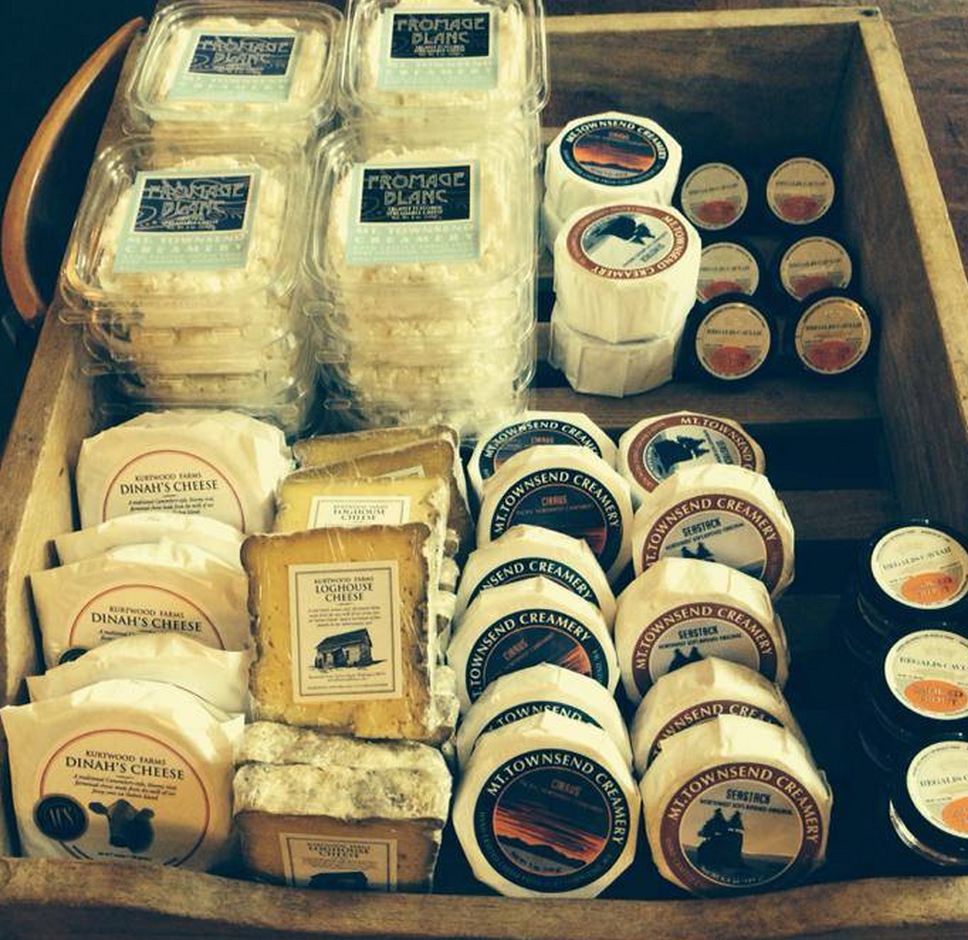Come summer, you can buy edibles and imbibables most days of the week atSeattle-area farmers markets. In addition to produce, specialty sellers offer up thelikes of fleur de sel caramels, hibiscus spice soda, and foraged mushrooms. There’sa lot of competition out there, and for new craft food and drink purveyors, gettingapproved and getting ready for opening day can be a daunting task.
In the past decade, the weekly outdoor events have grown in number (there are nowmore than a dozen in the city) and variety. With the exception of the independentlyrun Queen Anne Farmers Market and Pike Place Market, Seattle-area farmersmarkets are operated by either the Neighborhood Farmers Market Alliance (NFMA) orthe Seattle Farmers Market Association (SFMA).According to Judy Kirkhuff, Market Master, Seattle Farmers Market Association, thenew vendor application process takes two to three months to complete. Between 65and 70 first-time applications were received for the 2013 season. There were alsoat least 40 applicants rolled over this year from the 2012 waitlist. In addition, someapplications aren’t considered if they’re redundant. “An example is that we received28 bakery applications this year, for three markets, Kirkhuff says. “Only one is beinggiven the opportunity to sell at one of those markets this year.”Kirkhuff explains that organizing markets is about more than filling vacant slots.“A farmers market is not a numbers game. It is an existential experience,” shesays. “One of our missions is to nurture our small producers to such an extent thatsomeday they can actually move out of the hard work of direct marketing in manyoutdoor venues each week. We try to be careful that we balance what is being soldto what the demand is for that type of product.”Neighborhood Farmers Market Alliance Director Chris Curtis intentionally increasedthe number of farmers and purveyors at her markets by around 15 percent last year,but that doesn’t mean prospective vendors get a free pass. Applications are sent inNovember for the following year’s season (vendors reapply each year), with lineupsand permits sent by March. “We now have a record number of vendors who havebeen permitted to sell in 2013,” she says, including 11 new food processors. Eightapplicants who applied were rejected, while several others were added to a waitlist.Two-year-old artisan ice-pop vendor Six Strawberries says the process of becominga vendor with NFMA-operated markets involved sending a few emails, filling out aform, and dropping off samples. Co-owner Vanessa Resler explains that it, “definitelyfelt a little intimidated applying, because I knew how many people want to be sellingproducts in the farmers market. But I knew we had a unique product that really fellin line with farmers market values. As far as competition goes, our worry was thatalthough ice-pops are a completely different product than ice creams, we would havemarkets that felt uncomfortable placing us near other frozen desserts.”In addition to finding out how to best use dry ice to keep those tri-layered peanutbutter and jelly pops frozen, another challenging part of getting ready to sell wasacquiring the appropriate permits. “When we first launched in 2012 we weren’tallowed to get a permit from the Department of Agriculture, so we had to gothrough King County Health, which is extremely costly and more prohibitive,” Reslersays. “When the regulations recently changed, allowing for us to go through theDepartment of Agriculture (also allowing us to now wholesale) that was a big relief.”The business is also successfully completed the process of becoming the first-everSDOT licensed bicycle food cart.When Six Strawberries started selling last year, the owners say their goal wasn’tto turn a profit, but to test the waters. “The business should be viable within oneor two years. It is showing signs of quick growth, and gaining popularity–howeverour largest concern is scaling reasonably without getting ahead of ourselves anddrowning in the process,” co-owner Will Lemke says. The owners report increasedprofitability as the company’s fan base continues to grow. Counting Macklemore asone of those fans doesn’t hurt business, either. Now, Six Strawberries is focusing onbuilding a robust wholesale business, catering events, and bringing on another staffmember or two to help.Gluten-free bakery d:floured started selling at SFMA markets in 2011 and NFMAmarkets in 2012. Owners Phebe Rossi and Amanda Bedell said the process ofgathering business and licensing info, providing ingredient lists and sourcing eachrecipe for farmers market applications a little time to pull together. Bedell explainsthat there’s a “sense of competitiveness” when applying to sell at local markets,“but, in the end it’s the product that speaks for us. We focus on providing really goodfood; the rest will come,” she says.On market days, Rossi and Bedell spend about an hour setting up and unloading,with market start times during the week aligning with baking hours. Saturdaysinvolve getting up early to bake enough olive bread and carrot cinnamon tea cakefor the weekend rush. While d:floured measures profitability differently dependingon each specific market, “We always want to have a sell-out day because it’s reallysatisfying. We’ve become better and better at predicting sales–it’s more of a gutinstinct than the necessity to obtain a specific sales number, though,” Bedell says.“For us, the markets have value beyond the day-of sales. It’s our opportunity tomeet people face to face; share our food, get immediate feedback, and connect withpeople like us.” In addition to growing their wholesale clients, d:floured is hoping tosettle into a permanent retail location in the coming year.If d:floured does go brick-and-mortar, they’ll be following a trend alongside KedaiMakan, Hot Cakes, and others. “I’ve noticed there are lots of new processed andprepared food entrepreneurs who use the farmers markets as a research opportunityand small business incubator,” Curtis says. “Both Six Strawberries and d:floured hadnew, alternative processed food options which we thought would be a great additionto the markets. We are very excited to see them succeed.”







